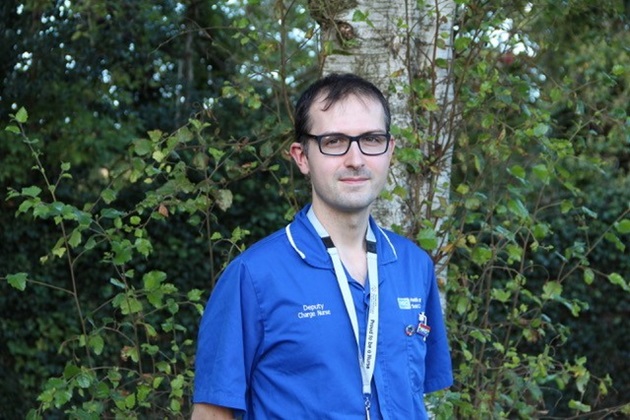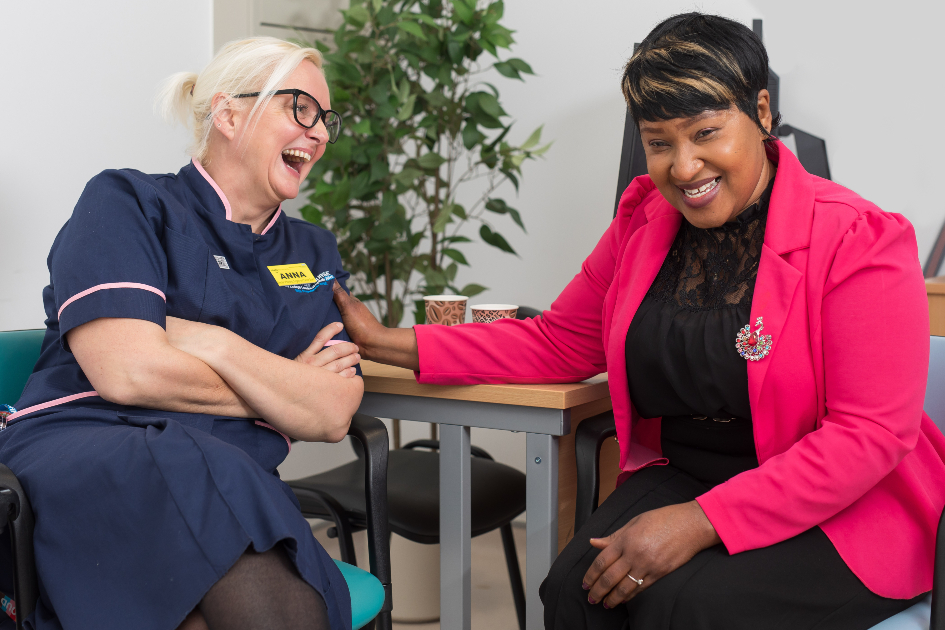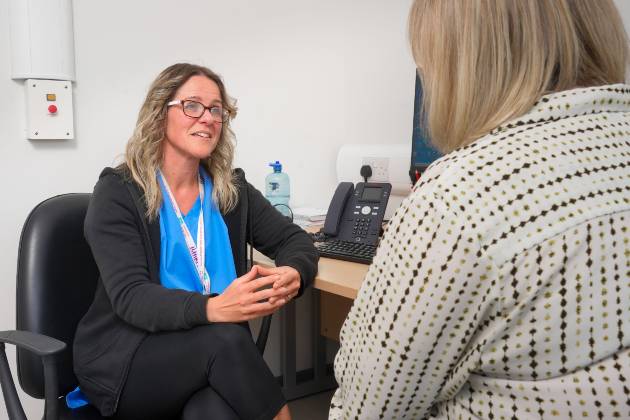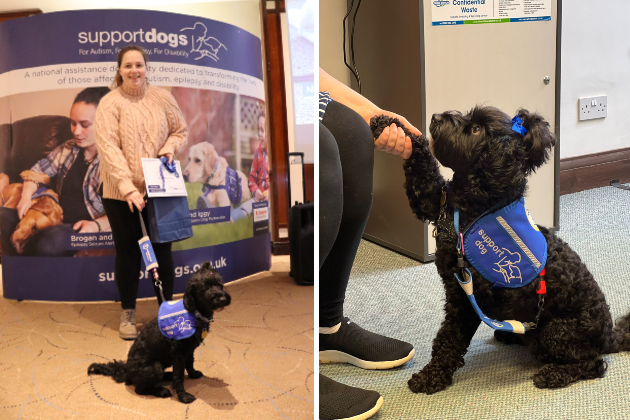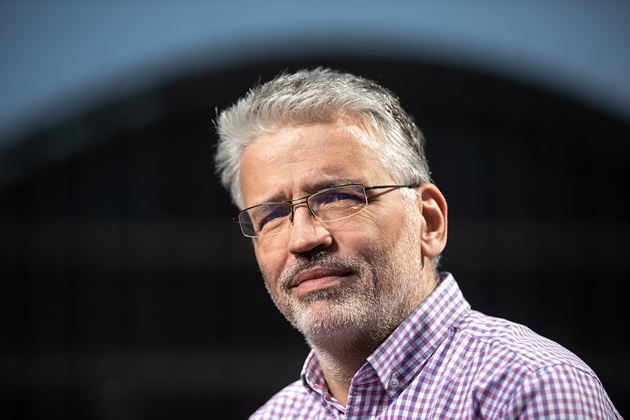RCN learning rep Andrew Tumilson transformed staff culture in his workplace by introducing clinical education sessions for members
When Andrew received his pin almost 12 years ago, he spent a year and a half working in gastroenterology services at Ulster Hospital, Belfast. After working in a few other roles, he returned to the department in 2018.
“When I came back, I realised not much had changed,” says Andrew. “Patients were coming in with the same issues, the same clinical incidents were occurring, and I could see a breakdown in communication between staff. It struck me that when incidents happened, there was no learning coming out of it and that needed to change.”
Andrew, who’s been an RCN learning rep for eight years now, decided to set up regular gastroenterology clinical education sessions for members working in the department and across his local area. His aim wasn’t just to improve learning but to try and help change the culture too.
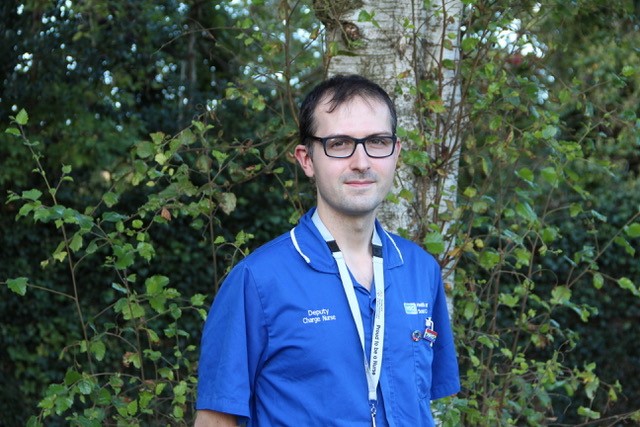
“I believe education is empowerment,” says Andrew. “We need to share knowledge and learning so staff feel equipped to make decisions and advocate for patients. It’s just as important to bring teams together to embed a culture of openness and transparency which helps to build and sustain trust.
“This can have a meaningful and positive impact on patient outcomes, decision making and the way the team works.”
We need to share knowledge and learning so staff feel equipped to make decisions and advocate for patients
Getting started
Andrew began by approaching some of the hospital’s gastroenterology consultants. “I sat down with them and we talked about the topics that would be beneficial to nurses,” says Andrew. “We discussed appropriate time and dates, and I went about setting up our first session.”
Andrew worked closely with his local RCN office in Belfast to make sure the sessions would be RCN accredited, count towards continuing professional development (CPD) and could be used for revalidation.
“Speakers forward a copy of their CV and other details, including what they’ll be covering in the session to the RCN so we can ensure the session is of a professional standard,” he explains.
“Members book their place on the sessions with me directly so I can keep track of numbers and who is attending. I’m responsible for the logistics but staff in the RCN Belfast office support me in confirming the content, producing the certificates and promoting the events to members.”
The first session in October 2019 was a great success and Andrew now holds a session every six to eight weeks covering topics such as crohn’s and colitis, management of liver disease, end of life care and medicines management. Speakers have included consultants in gastroenterology, clinical nurse specialists, pharmacists, and dietitians.
More than 150 people have attended sessions so far. Alongside staff from the hospital’s gastroenterology and haematology services, other attendees have included members working in other hospital services, such as ambulatory care, community nursing services and in the independent sector, such as in care homes.
Bringing staff together
Since the COVID-19 pandemic began, Andrew moved to host the sessions online. “This has allowed us to continue to connect with a wider range of members as people no longer have to travel a long way to attend,” he says. “The sessions bring different health care professionals together to share learning and they also help to build trust between different teams whose patients will meet at different points in their journey of a disease trajectory.
“It has led to better teamwork, understanding and communication, not just between nursing staff, but with other health care professionals too.”
The sessions have helped to change people’s mindset and create an environment where nursing staff feel confident in asking questions
Andrew says the sessions have improved patient care by enhancing members’ nursing skills and knowledge, and they help to facilitate meaningful learning from incidents. “When incidents happen, we look at a whole systems approach and what we can learn from them,” says Andrew, who has recently undertaken training to become an RCN safety rep alongside his learning rep role. “The sessions can help embed that learning.
“Importantly, they’ve also helped to change people’s mindset and to create an environment where nursing staff feel comfortable and confident in asking questions. I also use patient feedback to inform the sessions. We look at what patients struggle with in terms of managing their conditions and how staff can support them.”
Raising awareness
As well as improving patient care and workplace culture, Andrew hopes the sessions will raise the profile of gastroenterology, a speciality he feels is sometimes overlooked. “Digestive and liver disorders affect a huge amount of the population,” says Andrew. “But gastroenterology doesn't always get the coverage that other specialities do. I want to make sure gastroenterology is recognised as an important field in nursing and that we have appropriate educational resources.”
Andrew’s clinical education sessions have also helped raise the profile of the RCN within his workplace and across the region. “I think the sessions have helped attract new members, especially nursing students,” says Andrew. “Importantly, they’ve also highlighted to new and existing members that the RCN is a professional body as well as a union and that we’re committed to working with employers to help deliver better outcomes for patients and members.”
Andrew’s top tips for making clinical education sessions a success
- Make use of your RCN connections and materials. “Through my RCN roles, I’ve found new speakers and great resources for the sessions. I also make sure to ask fellow active members, like my branch chair, to share the events on their social media platforms. I also offer RCN pens and other merchandise at events where possible. Everyone loves a freebie and it’s great marketing too.”
- Build good relationships with your local communications and IT teams. “As well as promoting events through RCN channels and the RCN communications team in Belfast, I link up with my trust’s communications team to get the message out there. I’ve also built a good relationship with the trust’s IT team and make sure they’re on hand to help if anything goes wrong on the day.”
- Ask members for their feedback. “I always ask members to fill out a quick evaluation form. It’s a great way to make improvements and gather ideas for future sessions. Members can also contact me for further advice if they want to.”
- Expand your network wherever you can. “During the industrial action that took place in Northern Ireland in January 2020, I was part of my trust’s strike committee. I was out and about visiting different sites, meeting members, and making connections. I made sure to connect with those I met on social media where possible too.”
- Look out for other opportunities. “The sessions have led to better partnership working and some clinical nurse specialists in neighbouring trusts have approached me to talk about doing something similar in their workplaces. We’re also working together to review policies and see how we can standardise care to improve patient outcomes.”
Become an RCN rep
Becoming an RCN rep gives you the chance to make a real difference to your patients, the working lives of yourself and your colleagues, and even the future of nursing.
Find out more about the benefits of being an RCN rep and how to become one.


